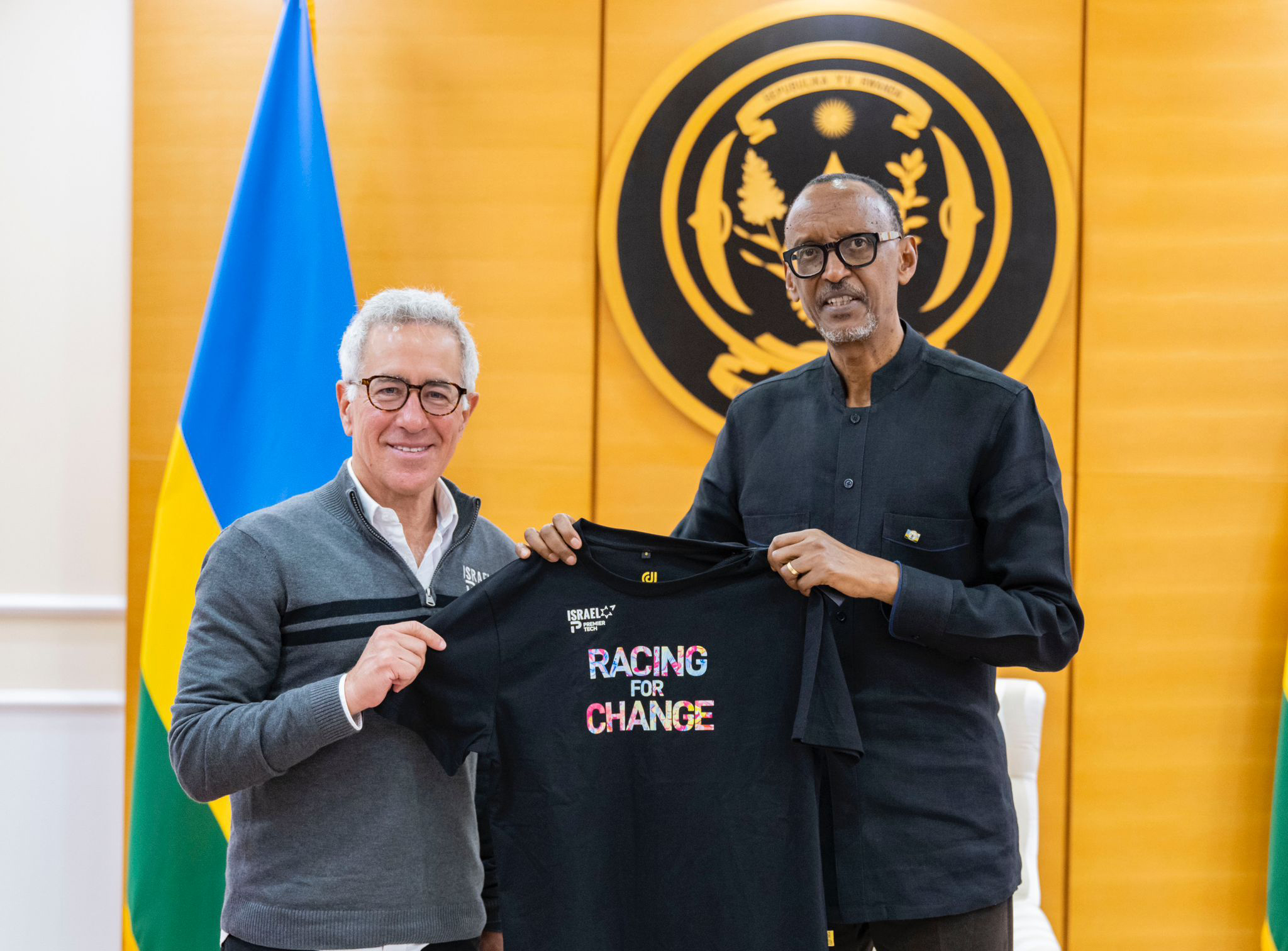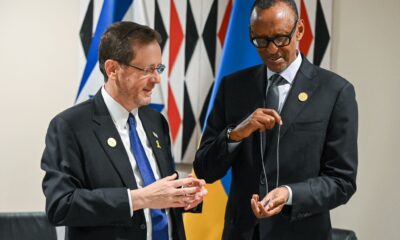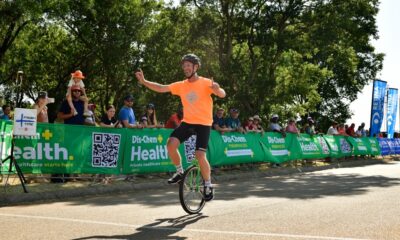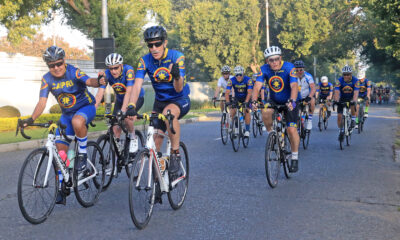
Sport

Israeli cycling champs uplift Rwandan kids
An Israeli cycling team has proved to be as committed to improving lives around the globe as it is to cycling, most recently in Rwanda, where the team is creating a safe haven for children.
Israel-Premier Tech (IPT)’s latest project, the Field of Dreams Bike Centre in Bugesera, Rwanda, has provided the community with training facilities, equipment, coaches, and even solar power, and it appears to just be the beginning of its mission. It’s dedicated to enriching the lives of thousands of youngsters with cycling as a starting block.
The team, co-owned by Sylvan Adams and Ron Baron, was founded in 2014 with a vision of giving a chance to young Israeli riders to get to the forefront of professional cycling. Since it was launched, the team realised it had a greater purpose and responsibility. “It wasn’t enough to compete just to win,” said spokesperson Tsadok Yecheskeli. “We wanted to use our exposure to change people’s lives,” particularly the lives of the younger generation.
The Field of Dreams centre forms part of the team’s Racing for Change initiative. This initiative, in which the team uses sport to help those in need, has had a positive impact on various countries around the world, such as in Afghanistan about a year ago, where it helped to rescue more than 100 cyclists (mostly vulnerable young women) after the takeover of the Taliban.
After participating in the Tour du Rwanda (the biggest cycling race in Africa) for many years, the team was eager to find a way to develop cycling and support the youth in the country. Two years ago, it met a genocide survivor in Bugesera who had opened a community centre there.
“He told us that Bugesera is the only place in Rwanda where women [traditionally] ride bikes,” said Yecheskeli. He said that the team felt strongly about helping this man get a team of young women together, and began bringing in coaches and equipment from Israel.
Last year, the community centre agreed to develop the large field behind the centre into a dedicated space for the cyclists. “I remembered the movie Field of Dreams which was about building a baseball field somewhere in remote Iowa, and suddenly a whole lot of people go there to play,” said Yecheskeli. “So, I suggested we try to do the same and build a centre for cycling for those kids so they can bike for fun and develop their skills.”
They then started a fundraising campaign for fans and supporters to donate to this initiative. The founders of the team also agreed to match all donations that were received. More than 1 000 fans donated, allowing the team to start building state-of-the-art facilities, including a pump track and racetrack. The next part of their plan is to build a dedicated cycling academy.
Though IPT intends to be involved in the community for many years to come, the main goal of the project is to boost the community and allow for meaningful social development. This project not only allows kids to have fun and learn new skills, it will assist some to continue training and become professional cyclists or coaches that will eventually train the next generation.
“We’re not doing it ourselves,” said Yecheskeli. “We provide money and expertise, but it’s theirs, it belongs to the community. We’re not just giving them money and then leaving, rather giving them a hand and the tools that will allow them to flourish in the future.”
IPT has also partnered with Israeli company Ignite Power to provide solar energy systems to assist those who have been living without electricity. According to their press release, “The kids who participate in the cycling programme at the team’s new Field of Dreams in Bugesera, Rwanda, will be able to do their homework after dark for the first time in their lives.
“Over the past few days, more than 20 homes have already been connected to electricity through this project, and many more families will be connected in the next few weeks. Ignite Power has committed to connecting at least 200 homes a year.”
A few days ago, a solar panel was connected to the mud home of the Nyiraromba family after one of the children began cycling at the Field of Dreams centre. This was the first time the child’s grandmother was able to experience living with electricity after being in that home for 78 years. “It may be too late for me, but I am happy for my grandchildren,” she said.
Adams thanked Ignite Power for joining forces, saying, “Bringing light and energy to homes is an enormous gift. This Field of Dreams that we built is the foundation for virtuous branches that provide sorely needed aid to our adopted Bugesera community. The best example is our partnership with Ignite, bringing solar-powered electricity to our community for the first time. These installations provide electricity for light, cooking, even the ability to charge cellphones, saving people from the prohibitively expensive service provided by charging vendors. The residents are immeasurably grateful, and I’m truly gratified to see the difference we’re making with our activities and partners.”
“We’re thrilled to partner with Israel-Premier Tech and its Field of Dreams project in Rwanda,” said Gil Karie, the director of innovation and strategic initiatives at Ignite Power. “This collaboration reflects Ignite’s commitment to empowering the people who need it most with access to reliable, clean energy to transform their lives. By deploying these systems, we enhance education and economic development, reduce fire and health hazards, and create a more sustainable future for all.”
Rwandan President Paul Kagame expressed full support for the project. The president said that he was “deeply appreciative” of those who have invested in Rwandan cycling infrastructure.
Adams explained why he’s so passionate about helping this community in Rwanda. Not only do Jewish people have the “ancient imperative” of tikkun olam, “which requires each of us to do something good in the world”, but the Rwandan and Jewish people share the common wound of a horrific genocide in the past century.
“It’s a project that we feel this community really deserves,” said Yecheskeli, who also mentioned tikkun olam. “It’s our moral obligation to take care of other people, not only our own, no matter their religion or where they come from. We don’t care about those things. We care about these youngsters and how we can touch their lives.”










